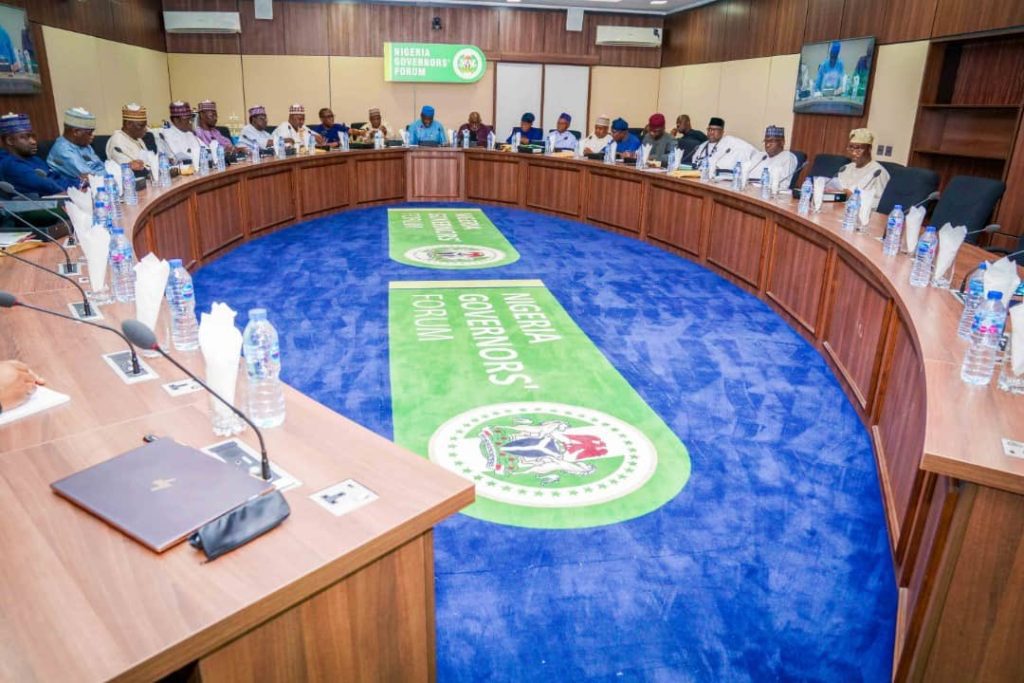The Nigeria Governors’ Forum has asked the National Minimum Wage Committee to take present circumstances and the unique characteristics of individual states into account when deciding on the wage amount. This is to understand the effects on both government and private sector employers’ ability to pay.
Labour unions have said the current national minimum wage of N30,000 is no longer effective, pointing to the high inflation rate of 29.9 per cent reported by the National Bureau of Statistics in the country.
As a result, in early January, the Federal Government set up the tripartite committee responsible for discussing the national minimum wage.
Vice President Kashim Shettima launched the 37-member panel at the Council Chamber of the State House in Abuja.
The committee includes representatives from federal and state governments, the private sector, and organized labor, and its task is to suggest a revised national minimum wage for the nation.
After nationwide consultations, workers have asked for different minimum wage rates across different geopolitical zones. As a result, the Federal Government Minimum Wage Panel has started collecting reports from public hearings held in various zones.
NGF, in a statement issued at the end of its virtual meeting and signed by its Chairman, Kwara State Governor AbdulRahman AbdulRasaq, dated Wednesday and made available to the press on Thursday, stressed the importance of including state policing as a crucial amendment in the ongoing 1999 Constitutional amendment process to address a fundamental flaw in the national security framework.
The statement read, “The Forum expressed sympathy for the Governor of Delta State, H.E Sheriff Oborevwori, following the communal clash between Okuama in the Ughelli South Local Government Area and Okolaba in the Bomadi Local Government Area of Delta State, which resulted in the deaths of many, including 16 military personnel. While condemning the heinous act, members observed a minute of silence for the souls of the departed.
“Members discussed the progress of the National Minimum Wage Committee and ongoing multi-stakeholder engagements to reach a fair minimum wage agreement.
Members urged the NMWC to consider the current realities, individual state peculiarities, and consequential impact on the capacity of the government as well as private sector employers to pay. Members also stressed the need for proposals to be data-driven and evidence-based.
“The forum emphasized the need for state policing as a critical amendment in the ongoing 1999 Constitutional amendment proceedings to correct a fundamental flaw in the national security architecture.”
The forum assessed states’ progress in implementing business-friendly reforms, such as improving land administration, promoting Public Private Partnerships, attracting investments, enhancing infrastructure, and refining regulatory environments through the World Bank’s State Action on Business Enabling Reforms Programme for Results.
The group said, "The United States Embassy has expressed worry about illegal adoption of Nigerian children by US citizens. They mentioned fraud, corruption, child buying, jailing of pregnant women, and unreliable documentation. The group promised to work with government departments to solve this problem."
The group talked about the progress states have made in making it easier to do business. This includes improving land administration, Public Private Partnership (PPP), investment promotion, business infrastructure, and regulatory environment. They asked members to use support from the World Bank program to make more economic growth reforms.



